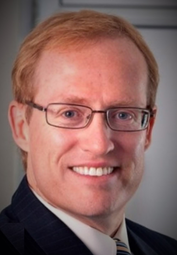Main Conference KEYNOTEs

Keynote by Prof. Carla Gomes
Ronald C. and Antonia V. Nielsen Professor of Computing and Information Science,
Director, Institute for Computational Sustainability
Cornell University
Title: Computational Sustainability: Computing for a Better World and a Sustainable Future
Abstract:
Artificial Intelligence (AI) is a rapidly advancing field. Novel machine learning methods combined with reasoning and search techniques have led us to reach new milestones: from computer vision, machine translation, and Go and Chess world-champion level play using pure self-training strategies, to self-driving cars. These ever-expanding AI capabilities open up new exciting avenues for advances in new domains. I will discuss our AI research for advancing scientific discovery for a sustainable future. In particular, I will talk about our research in a new interdisciplinary field, Computational Sustainability, which has the overarching goal of developing computational models and methods to help manage the balance between environmental, economic, and societal needs for a sustainable future. I will provide examples of computational sustainability problems, ranging from biodiversity and wildlife conservation, to multi-criteria strategic planning of hydropower dams in the Amazon basin and materials discovery for renewable energy materials. I will also highlight cross-cutting computational themes and challenges for AI at the intersection of constraint reasoning, optimization, machine learning, multi-agent reasoning, citizen science, and crowd-sourcing.
Biography:
Carla Gomes is a Professor of Computer Science and the director of the Institute for Computational Sustainability at Cornell University. Gomes received a Ph.D. in computer science in the area of artificial intelligence from the University of Edinburgh. Her research area is Artificial Intelligence with a focus on large-scale constraint reasoning, optimization, and machine learning. Recently, Gomes has become deeply immersed in research on scientific discovery for a sustainable future and more generally in research in the new field of Computational Sustainability. Computational Sustainability aims to develop computational methods to help solve some of the key challenges concerning environmental,
economic, and societal issues in order to help put us on a path towards a sustainable future. Gomes has (co-)authored over 150 publications, including five best paper awards, which have appeared in venues spanning Nature, Science, and a variety of conferences and journals in AI and Computer Science. Her research group has been supported by over $50M in basic research funds. Gomes is a Fellow of the Association for the Advancement of Artificial Intelligence (AAAI), a Fellow of the Association for Computing Machinery (ACM), and a Fellow of American Association for the Advancement of Science (AAAS).
Ronald C. and Antonia V. Nielsen Professor of Computing and Information Science,
Director, Institute for Computational Sustainability
Cornell University
Title: Computational Sustainability: Computing for a Better World and a Sustainable Future
Abstract:
Artificial Intelligence (AI) is a rapidly advancing field. Novel machine learning methods combined with reasoning and search techniques have led us to reach new milestones: from computer vision, machine translation, and Go and Chess world-champion level play using pure self-training strategies, to self-driving cars. These ever-expanding AI capabilities open up new exciting avenues for advances in new domains. I will discuss our AI research for advancing scientific discovery for a sustainable future. In particular, I will talk about our research in a new interdisciplinary field, Computational Sustainability, which has the overarching goal of developing computational models and methods to help manage the balance between environmental, economic, and societal needs for a sustainable future. I will provide examples of computational sustainability problems, ranging from biodiversity and wildlife conservation, to multi-criteria strategic planning of hydropower dams in the Amazon basin and materials discovery for renewable energy materials. I will also highlight cross-cutting computational themes and challenges for AI at the intersection of constraint reasoning, optimization, machine learning, multi-agent reasoning, citizen science, and crowd-sourcing.
Biography:
Carla Gomes is a Professor of Computer Science and the director of the Institute for Computational Sustainability at Cornell University. Gomes received a Ph.D. in computer science in the area of artificial intelligence from the University of Edinburgh. Her research area is Artificial Intelligence with a focus on large-scale constraint reasoning, optimization, and machine learning. Recently, Gomes has become deeply immersed in research on scientific discovery for a sustainable future and more generally in research in the new field of Computational Sustainability. Computational Sustainability aims to develop computational methods to help solve some of the key challenges concerning environmental,
economic, and societal issues in order to help put us on a path towards a sustainable future. Gomes has (co-)authored over 150 publications, including five best paper awards, which have appeared in venues spanning Nature, Science, and a variety of conferences and journals in AI and Computer Science. Her research group has been supported by over $50M in basic research funds. Gomes is a Fellow of the Association for the Advancement of Artificial Intelligence (AAAI), a Fellow of the Association for Computing Machinery (ACM), and a Fellow of American Association for the Advancement of Science (AAAS).

Keynote by Prof. Douglas Schmidt
Cornelius Vanderbilt Professor of Engineering (Computer Science),
Associate Provost of Research, and
Co-Director, Data Science Institute
Vanderbilt University.
Title: Architecting the Systems of the Future: A Research Agenda
Abstract:
Software has become essential to modern life and controls functions as diverse as the capabilities for home appliances, aircraft flight control systems, mobile phones, health care systems, financial transactions, and digital learning. Individuals, organizations, markets, and governments are increasingly dependent on software. Despite advances in computing and software technologies, however, we continue to see headlines about failures related to software, particularly distributed real-time and embedded software.
This presentation will cover investments and advances in research needed to address these issues. In particular, I will discuss how the current notion of software development will be replaced by one where the software pipeline consists of AI and humans collaborating at scale on continuously evolving systems. These software-enabled systems will be even more pervasive than today, with levels of trust commensurate with the importance of the decisions they make.
I will also discuss how software and humans need to become mutually trustworthy peers comprising socio-technical ecosystems, where human expressions of intent are reliably understood and socio-technical platforms enable collaboration at scale, leading to socially resilient, ethical, and unbiased behavior. Advances in compositional correctness and continuous reflection are also needed to allow intelligent systems to learn from experience and continuously improve.
Biography:
Dr. Douglas C. Schmidt is the Cornelius Vanderbilt Professor of Computer Science, Associate Provost for Research, Co-Chair of the Data Science Institute, and a Senior Researcher at the Institute for Software Integrated Systems at Vanderbilt University. He is also a Visiting Scientist at the Software Engineering Institute (SEI) at Carnegie Mellon University (CMU), where he served as the Chief Technology Officer from 2010 to 2012.
Dr. Schmidt's research covers a range of software-related topics, including patterns, optimization techniques, and empirical analyses of frameworks and model-driven engineering tools that facilitate the development of mission-critical middleware for distributed real-time embedded (DRE) systems and mobile cloud computing applications running over wireless/wired networks and embedded system interconnects. He has published 650+ technical papers and books that have been cited 44,000+ times, his h-index is 87, and he has mentored and graduated over 40 Ph.D. and Masters students.
Dr. Schmidt received B.A. and M.A. degrees in Sociology from the College of William and Mary in Williamsburg, Virginia, and an M.S. and a Ph.D. in Computer Science from the University of California, Irvine (UCI) in 1984, 1986, 1990, and 1994, respectively.
Cornelius Vanderbilt Professor of Engineering (Computer Science),
Associate Provost of Research, and
Co-Director, Data Science Institute
Vanderbilt University.
Title: Architecting the Systems of the Future: A Research Agenda
Abstract:
Software has become essential to modern life and controls functions as diverse as the capabilities for home appliances, aircraft flight control systems, mobile phones, health care systems, financial transactions, and digital learning. Individuals, organizations, markets, and governments are increasingly dependent on software. Despite advances in computing and software technologies, however, we continue to see headlines about failures related to software, particularly distributed real-time and embedded software.
This presentation will cover investments and advances in research needed to address these issues. In particular, I will discuss how the current notion of software development will be replaced by one where the software pipeline consists of AI and humans collaborating at scale on continuously evolving systems. These software-enabled systems will be even more pervasive than today, with levels of trust commensurate with the importance of the decisions they make.
I will also discuss how software and humans need to become mutually trustworthy peers comprising socio-technical ecosystems, where human expressions of intent are reliably understood and socio-technical platforms enable collaboration at scale, leading to socially resilient, ethical, and unbiased behavior. Advances in compositional correctness and continuous reflection are also needed to allow intelligent systems to learn from experience and continuously improve.
Biography:
Dr. Douglas C. Schmidt is the Cornelius Vanderbilt Professor of Computer Science, Associate Provost for Research, Co-Chair of the Data Science Institute, and a Senior Researcher at the Institute for Software Integrated Systems at Vanderbilt University. He is also a Visiting Scientist at the Software Engineering Institute (SEI) at Carnegie Mellon University (CMU), where he served as the Chief Technology Officer from 2010 to 2012.
Dr. Schmidt's research covers a range of software-related topics, including patterns, optimization techniques, and empirical analyses of frameworks and model-driven engineering tools that facilitate the development of mission-critical middleware for distributed real-time embedded (DRE) systems and mobile cloud computing applications running over wireless/wired networks and embedded system interconnects. He has published 650+ technical papers and books that have been cited 44,000+ times, his h-index is 87, and he has mentored and graduated over 40 Ph.D. and Masters students.
Dr. Schmidt received B.A. and M.A. degrees in Sociology from the College of William and Mary in Williamsburg, Virginia, and an M.S. and a Ph.D. in Computer Science from the University of California, Irvine (UCI) in 1984, 1986, 1990, and 1994, respectively.

